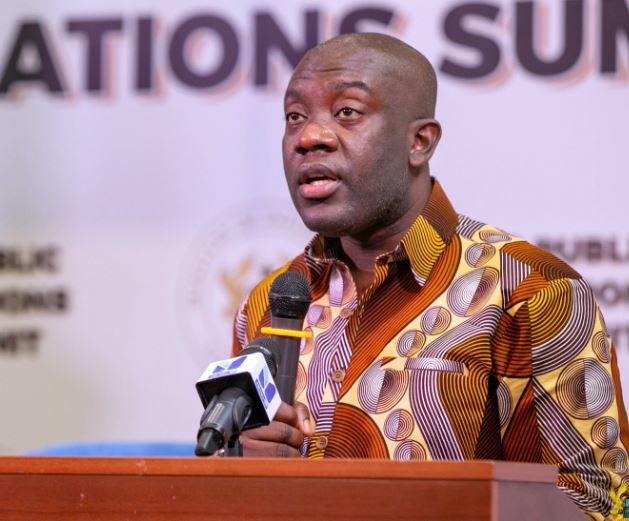Kojo Oppong Nkrumah, the Minister for Information has commended government’s GH¢21bn reduction in the appropriation for the 2023 fiscal year.
Stating his position on the mid-year budget presented by Finance Minister Ken Ofori-Atta on Monday, this week, on the floor or parliament, Mr Nkrumah said though calls remain for further budget cuts, the mid-year GH¢21bn cut is commendable.
“I think one of the first things to note is that the appropriation has been reduced by GHS 21 billion and I think for those who pay attention to fiscal policy or to the fiscal framework, that is a good thing, except that GH¢10billion of that is somewhere around interest payment and the rest is spread across the various expenditure lines.
“Nonetheless, it is a reduction in the appropriation of government’s expenditure and I think that it is something that should give people some comfort that we are doing well to stay within the deficit constraints that we have imposed upon ourselves”, the Minister said.
The 2023 budget saw a substantial GHS 21 billion reduction in government expenditure, a move that the Information Minister deemed commendable. He highlighted the importance of this fiscal discipline in achieving economic stability and adhering to deficit constraints set by the government.
While acknowledging that a portion of the reduction was allocated to interest payments, the Information Minister emphasised that the overall decrease in expenditure signals the government’s determination to streamline its financial resources and prioritise development initiatives.
He underscored the need to learn from the current economic landscape and make informed decisions to support the country’s economic growth. He emphasised that the government remains steadfast in bolstering financial stability, which was a key theme highlighted by Finance Minister Ken Ofori-Atta during the budget presentation.
The mid-year budget review provided an opportunity to assess the country’s economic performance and evaluate fiscal policies to ensure they are aligned with national development priorities.
The reduction in government expenditure reflects the impact of the successful Domestic Debt Exchange Programme (DDEP) which has created fiscal space for growth-enhancing reforms and managed rising debt costs.
The budget review also highlighted government’s growth agenda, which prioritizes inclusive development and private sector investments to stimulate job creation and sustainable economic growth.
Key growth-oriented programmes, such as the Planting for Food and Jobs (PFJ) Phase II, aim to strengthen agriculture and value-addition, providing opportunities for the youth and fostering economic diversification.










